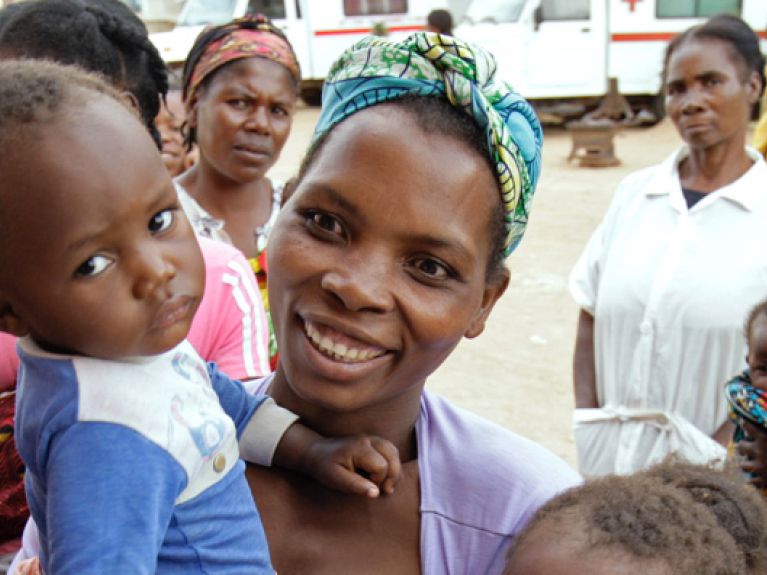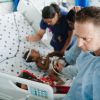How Europe helps to build a better world
The EU is the largest development assistance donor worldwide. The Commission and the member states are increasingly coordinating their efforts in this regard.

Healthy mothers and children in the Congo
Reducing infant mortality and improving the health of mothers are two of the Millennium Development Goals that the UN set itself in 2001. The European Union is supporting the Democratic Republic of Congo’s quest to achieve these two goals. To this end, in early 2014 it launched a special health programme that, among other things, combats mother/child transmission of HIV/AIDS and supports the prevention of violence against women. The programme will enable roughly half a million women and children aged five and under to receive better healthcare.
The EU has also been providing structural assistance for the healthcare sector in the Central African country since the 1990s. For example, it has been involved in improving hospital management structures in collaboration with local partners. As a result, the costs of providing healthcare have been cut by approximately half.
Financial inclusion in the Pacific
Many inhabitants of the Pacific islands cannot afford insurance. Without this safety net, however, they are hit all the harder when, for example, the harvest fails or the family breadwinner falls ill. The Pacific for Financial Inclusion Programme (PFIP) has developed affordable micro-insurance policies for this group. Another key focus of the programme is education.
On Fiji, thanks to the PFIP, the issue of financial competence has actually been included in school curricula. As a result, approximately 200,000 school students will have received instruction on financial topics by 2019.
The European Union co-funds the programme, which reaches from Papua-New Guinea to Samoa, jointly with the Australian and New Zealand governments.
Eco-friendly rice farming in Myanmar
In the rural regions of Myanmar, over a period of six months (exactly the duration of one season of rice planting) farmers are learning about new cultivation methods and technologies. Some are already applying the new system of rice farming that is not only more eco-friendly, but also offers higher yields than the old cultivation methods. This knowledge transfer is part of the broad LIFT programme run by the European Union, which aims to help sustainably secure the basic needs of Myanmar’s rural population.
Moreover, the programme is also supporting people with disabilities in Myanmar, a country in the midst of a wide-ranging transformation process. For example, it is providing training and start-up capital for savings and loans groups. Founded in 2009, the programme is funded by the European Union and several governments worldwide.

